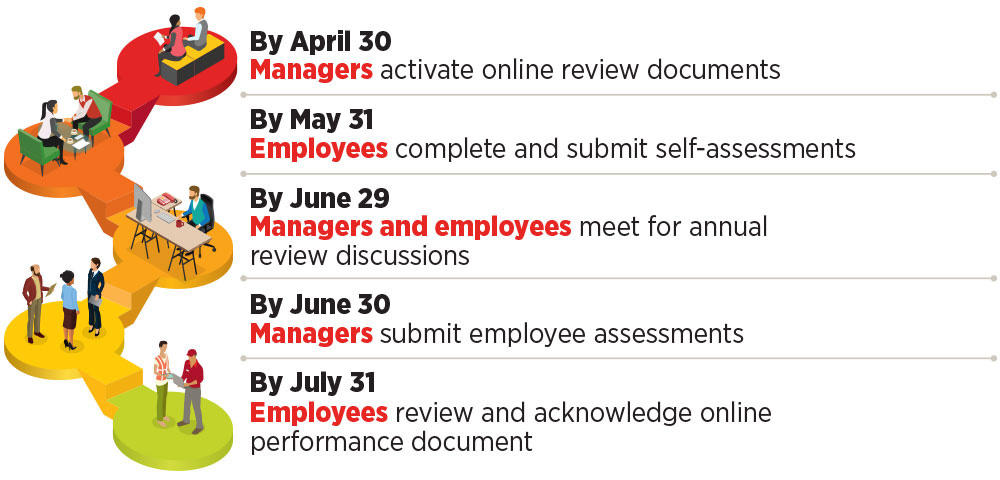
Self assessments are due from MaPS employees by May 31 as part of annual performance reviews.
Pixabay image by rawpixel
May 22, 2019

Self assessments are due from MaPS employees by May 31 as part of annual performance reviews.
Pixabay image by rawpixel
With the MaPS annual review process in full swing, it’s a great time to consider the reasons that annual reviews are well worth our time and effort.
Marcia Bulchholz, associate vice-president of Human Resources, says annual reviews can play an essential role in how employees and managers experience their life at work.
“No matter what stage you’re at in your career, meaningful annual review conversations can help you see your place and path at the university more clearly,” she says. “The benefits of completing thoughtful annual reviews for yourself and your direct reports are considerable, and they should not be overlooked.”
Get psyched about the end of the performance year with these top-five ways that annual reviews can add value to your work life.
1. They build a better resume by demanding documentation
Not everyone excels at singing their own praises — some even struggle to remember their praiseworthy accomplishments at all. Your online review documents serve double duty as a guide for your one-on-one review conversations and as a detailed record of past achievements.
Dusting off your resume to pursue a new career opportunity? Log in to my.ucalgary.ca for the career successes you outlined in past self-assessments. While you’re there, check out your managers’ assessments too — their thoughts on your performance can add valuable perspective on how you represent yourself.
2. They prepare you for growth — even if you’re nearing the end of your career
Annual reviews are a great time to discuss professional aspirations, and opportunities for learning and career development. Setting and checking in on development goals with your manager will help you achieve continued growth throughout your career.
But what if you’re getting ready to retire in the next few years and career growth doesn’t drive you like it used to? Annual reviews are an opportunity to discuss with your manager how you can transfer your wealth of knowledge to others before moving on. Explore mentoring possibilities that will enable others to succeed at UCalgary after you move on to enjoy your next chapter.

The MaPS performance review cycle is now underway.
3. They incite positive change
An open conversation with your manager may lead to doing more of what you love and less of what you don’t. Change is constant — do what you can to affect the change you want by telling your manager what you think about your current role.
Are you challenged enough? Too challenged? Discuss ways to find alignment between what you have to offer and what you have to do — that could mean building skills, taking on stretch assignments, or training others on certain aspects of your role.
4. They help employees feel (and be) seen
No matter how much you love your job, professional successes can mean more with a witness. Annual reviews are an opportunity for managers to let their direct reports know that they are seen, their effort is valued and their interests are considered.
Review time also offers employees a chance to point out achievements that may have been overlooked — even the most attentive manager can’t notice all the incredible stuff you do, so be sure to capture it in your self-assessment!
5. They give you a view of the big picture
UCalgary is a busy place, and we’re all doing our part to enrich the campus culture and student experience — but how often do you take a step back and really look at how your day-to-day efforts help drive UCalgary forward through the Eyes High strategy?
Annual review conversations can help define — or redefine — the role that you play in the university’s broader goals so that you can better understand the impact of your work.